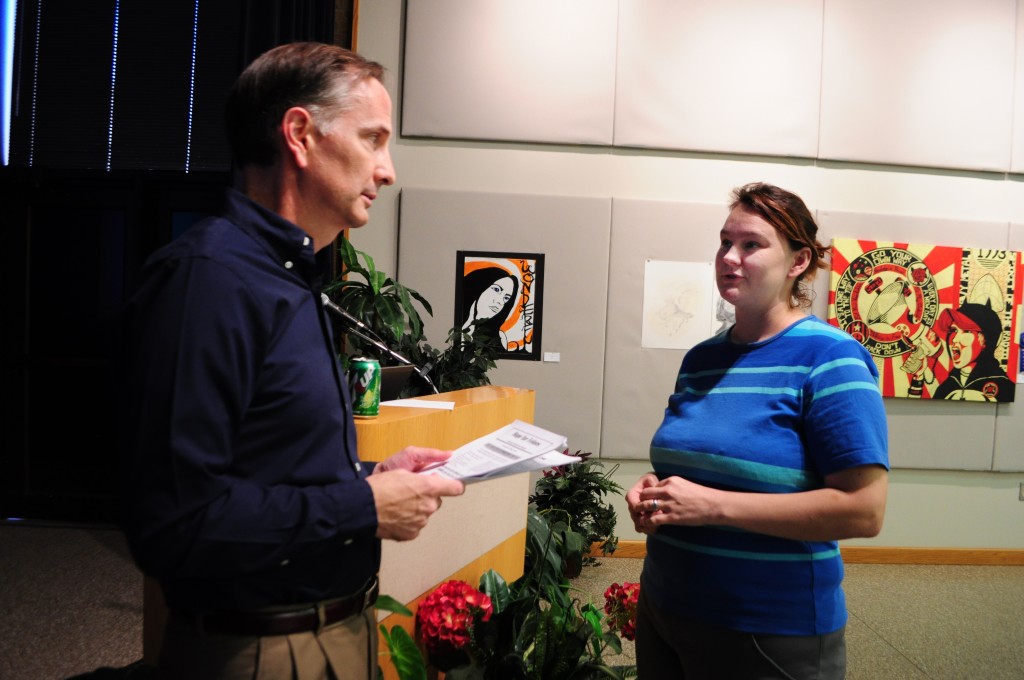By Emina Gibic/reporter
An unknown virus lying dormant in the body might be a type of herpes, a NW Campus audience learned March 8.
Laura Hansen, an assistant professor at Texas Woman’s University, spoke to NW students and faculty about her ongoing research on the cytomegalovirus (CMV).
Hansen holds a doctorate in immunology from Cornell University and began the study of CMV in her lab at TWU.
“Studies in my lab focus on CMV, one of the eight herpes viruses,” she said. “We are focusing on how the virus overcomes host cell defense mechanisms by studying a family of genes present in CMV.”
An estimated 65 percent of the population is infected with the virus by the time they are adults, Hansen said. However, most people are not aware they carry the virus because it has no symptoms.
“Unless you are immunocompromised, such as a person getting an organ transplant or an AIDS patient, you will most likely have no complications with CMV,” she said.
When people contract any virus in the herpes family, they get a gift that keeps on giving, meaning they have it forever, Hansen said.
CMV can cause periodic complications when the immune response is delayed because of another illness or even something as minor as stress, she said.
Hansen said CMV can cause serious disease and complications in babies infected with the virus while in their mother’s womb.
The infected mother’s blood passes through the placenta and into the baby’s blood supply.
“The most common transmission of CMV is through saliva, urine or vaginal secretions,” she said. “You must have close contact with the person in order to become infected with CMV.”
Women must wash their hands properly after changing diapers and take hygienic precautions to prevent being infected with the virus while they are pregnant, Hansen said.
“Babies that are infected with CMV while still in the womb can develop permanent disabilities later on in life, such as hearing or vision loss,” she said.
NW student Jessica Gray saw the speech as a precautionary lesson.
“It was interesting to find out what I can do to protect myself,” she said.
NW student Katie Martin thought the speech had a lot of information and was intimidating at some points, but still interesting.
“I was surprised to find out how common CMV actually is,” Martin said.
Hansen said that when she tells people about CMV, they tell her they have never heard of it and ask why they should care anyway. Studying CMV can open doors to anti-viral therapy in cancer patients, she said.
“Right now, a CMV vaccine is one of the top 10 desirable vaccines in the medical community,” she said.





























